Objects of Intrigue: The Golf Club Swung on the Moon
The golf club used by Alan B. Shepard on the moon, and the sock he smuggled it aboard in (courtesy USGA Museum)
Alan B. Shepard wasn’t just the first American in space and the fifth person to walk on the moon, he was also the first and only astronaut to play golf outside of our atmosphere. On February 6, 1971 during the Apollo 14 moon mission for which he was serving as commander at the age of 47, he set down two golf balls on the lunar surface. Down below on the home planet, people watched on color TV as he took his shots.
The first ball angled off into a crater. But Shepard, constrained by his hefty spacesuit and gloves, his vision cloistered by the helmet, prepared for the second. This swing was solid and the ball, as he said to the viewing audience, soared for “miles and miles and miles” in the light gravity — one-sixth that of the Earth.
Alan B. Shepard with the “moon club,” and the unfolded club on the right (courtesy USGA Museum)
Shepard had to smuggle the makeshift 6-iron club head and two balls on the Saturn V rocket inside his sock, as extra weight and fun and games on the moon wasn’t exactly encouraged by NASA. However, the action in itself was a tangible demonstration of the physical nature of the moon that was readily engaging for the world, and remains one of the most iconic moments of human history on the moon. You might think both the sock and club would have ended up in the Smithsonian National Air and Space Museum, but the club on display there is actually a replica. The real Shepard club along with that traveling sock are actually held by the United States Golf Association Museum in Far Hills, New Jersey.
Senior Historian Mike Trostel at the USGA Museum explained to Atlas Obscura over the phone that Shepard’s idea to play golf on the moon came while giving Bob Hope a tour of the NASA complex, who was swinging an old driver he’d brought with him while hooked up to a moon walker. Shepard saw the entertainer bouncing on his toes with the driver as support and suddenly was struck with the idea that it would be incredible to hit a ball in space if he ever got up there.
He got that chance on the Apollo 14 mission, a decade after his trip as the second person in space aboard the Freedom 7 in 1961 (he was just beaten out to first by Soviet cosmonaut Yuri Gagarin). So Shepard went over to the River Oaks Country Club in Houston and a man named Jack Harden jerry-rigged a retractable instrument that would be used for rock and soil samples into a foldable 6-iron. It was soon unfolded by Shepard out during their lunar explorations. However, the golfing wasn’t easy.
“When he got up there to the moon, he could barely get two hands on the club, the suit was so bulky,” Trostel said. But he did manage it, having practiced in secret in his suit back on the surface, and the second shot connected. A usual 6-iron swing goes about 150 yards and has an airtime of about 25 to 30 seconds, but that second shot Shepard took went between 200 to 400 yards (not quite the miles and miles he’d said on television, but it likely felt that way in the moment).
“Presumably, the ball is still up on the surface,” Trostel said. However, the club and sock curiously ended up at the museum through another iconic entertainer — Bing Crosby, a great friend of Shepard, as well as an avid golfer. Crosby got in touch with Shepard and said it would make sense to have the club at the museum, and the astronaut agreed. “We’ve had it on display ever since,” Trostel said. (The sock is kept in storage.)
The USGA Museum is the oldest sports museum in the United States, and while golf is of course central, it’s as much about the history of the country. There are clubs from presidents, including Dwight D. Eisenhower who was incredibly influential in making golf popular, clubs that were used on Everest and Antarctica, and other artifacts going back to the 19th century.
“It’s not just the sports, it’s relating to how golf is important to American culture,” Trostel said. “We want to make sure that we’re telling the story of golf not in a vacuum, but relating it to what is happening at a time.” And in 1971, what was happening was a trip to the moon.
The “moon club” and sock (courtesy USGA Museum)
The United States Golf Association Museum is located in Far Hills, New Jersey. Click here to find out more about the intriguing artifacts of sports history in the museum.
Objects of Intrigue is a feature highlighting extraordinary objects from the world’s great museums, private collections, historic libraries, and overlooked archives. See more incredible objects here >
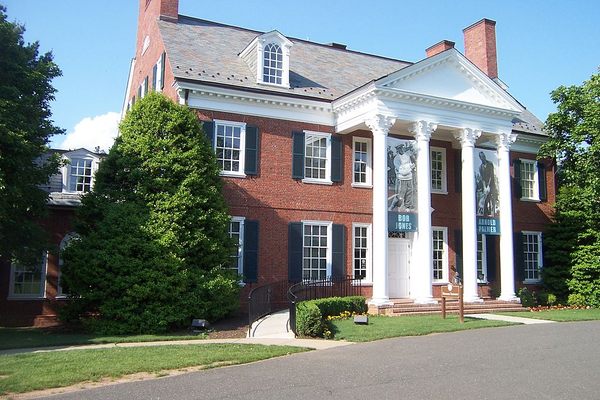



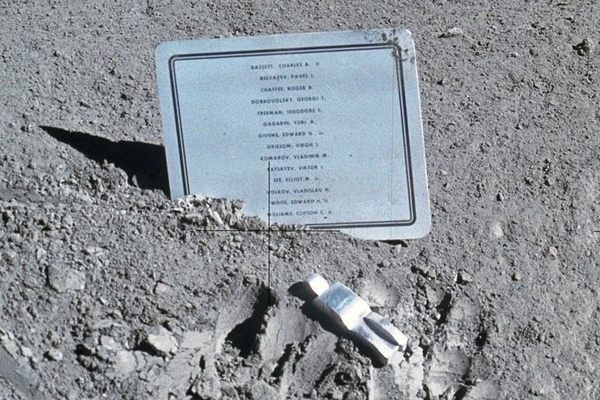

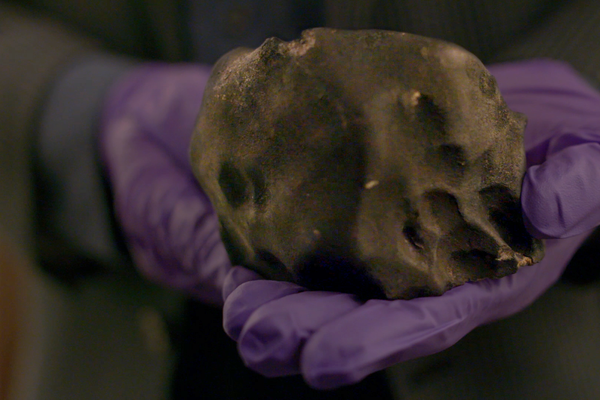
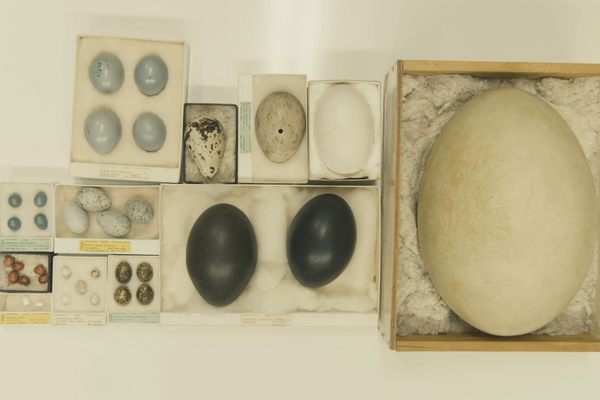
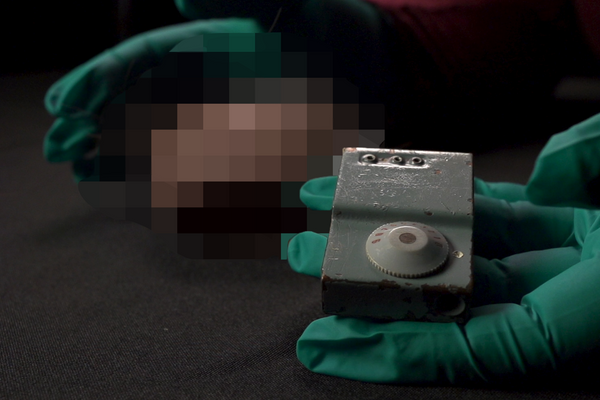



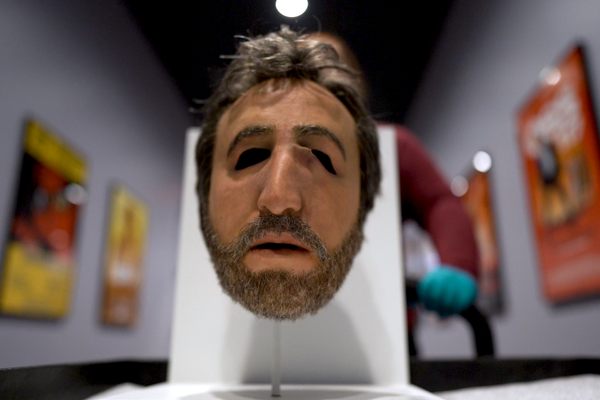

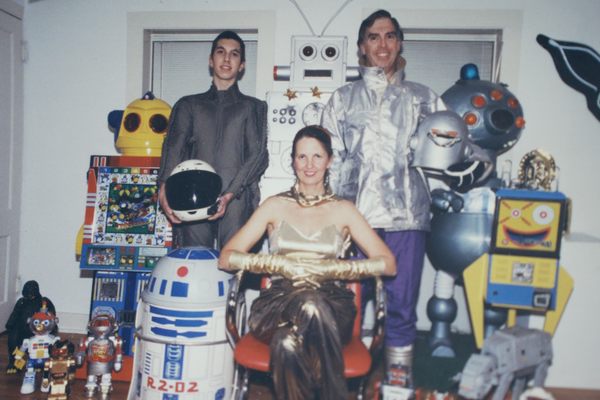
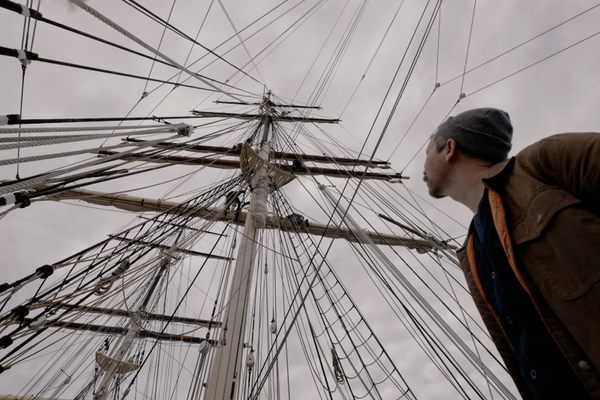
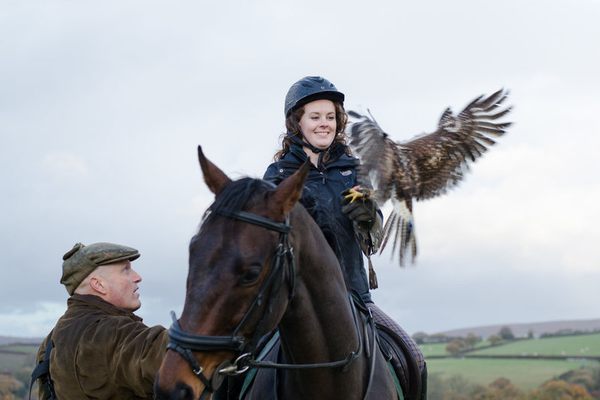
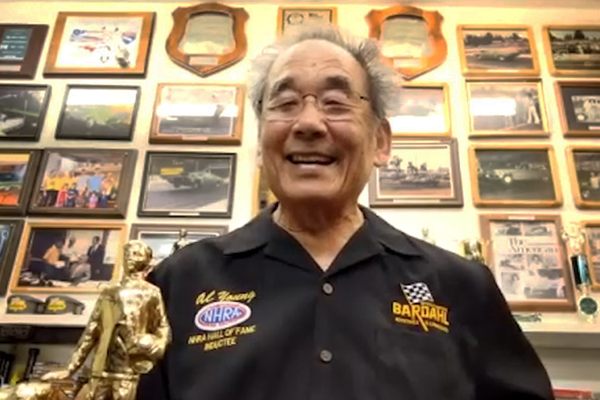



Follow us on Twitter to get the latest on the world's hidden wonders.
Like us on Facebook to get the latest on the world's hidden wonders.
Follow us on Twitter Like us on Facebook